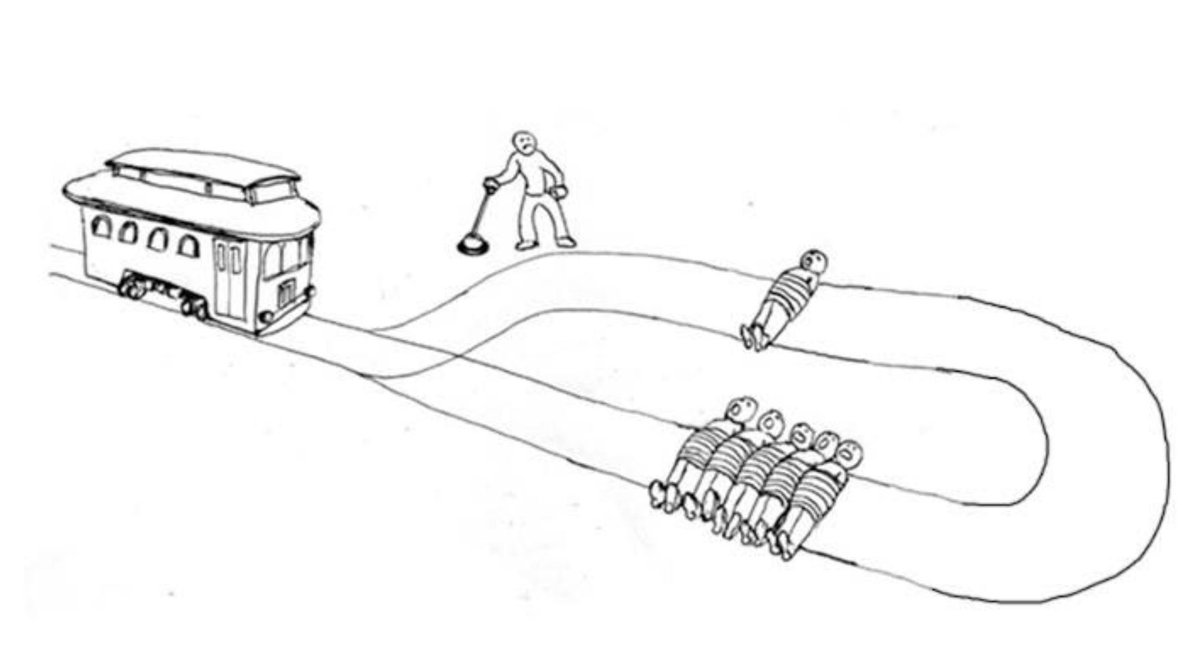
CONSULTING AND FRAGILIZATION
Too often, consulting engagements end up making the client more fragile.
Why? What can clients AND consultants do differently?
(thread, 1/N)
Too often, consulting engagements end up making the client more fragile.
Why? What can clients AND consultants do differently?
(thread, 1/N)
2/ One possible cause is, of course, psychopathic consultants & self-centered management. But there's a lot that can go wrong even when both parties are well-meaning.
Here are 3 problems that must be addressed to avoid consulting disasters, even assuming competence & good faith.
Here are 3 problems that must be addressed to avoid consulting disasters, even assuming competence & good faith.
3/ I often say, "centralization is only efficient to the central observer"
Similarly, consulting is often only effective to the central observer
If it only considers what matters to the central observer, it will only do good relative to what's considered by the central observer
Similarly, consulting is often only effective to the central observer
If it only considers what matters to the central observer, it will only do good relative to what's considered by the central observer
4/ An example: client A says, "we have problem X."
It's the consultant job to know that X is just problem Y seen from A's point of view.
The consultant might have to address Y. Or even Z, the elephant in the room.
If he only addresses X, he's not doing his job.
It's the consultant job to know that X is just problem Y seen from A's point of view.
The consultant might have to address Y. Or even Z, the elephant in the room.
If he only addresses X, he's not doing his job.
5/ However, it's hard for the consultant to tell A that what must be addressed is Z and not X.
Especially if the deal was already sealed by another salesperson and the consultant was sent in specifically to solve X and not to make the company stronger.
Especially if the deal was already sealed by another salesperson and the consultant was sent in specifically to solve X and not to make the company stronger.
6/ This is, of course, not an apology of the consultant nor of the salesperson. Both should stand strong and push back and say, you're calling us for problem X, but really you should address Z, and unless you do, things won't go well.
7/ Similarly, it's also the client's job to ask for broad help without pretending that he already made a final diagnosis of the problem the consultant should be working on.
8/ A second point is success metrics. They come in two kinds.
Lagging indicators describe success (eg revenue).
Leading indicators describe the conditions that lead to success (eg training, client relationships, quality, etc).
Both are necessary & none is sufficient.
Lagging indicators describe success (eg revenue).
Leading indicators describe the conditions that lead to success (eg training, client relationships, quality, etc).
Both are necessary & none is sufficient.
9/ A project that only focuses on lagging indicators will lead to short-term results but be vulnerable to fizzle or even be destructive in the long term.
10/ On the one hand, consultants should educate clients on leading indicators and fight for their consideration in their projects.
On the other hand, clients should demand and incentivize consultants to care about them.
On the other hand, clients should demand and incentivize consultants to care about them.
11/ This thread is not about assigning blame. It's about pointing out problems that must be addressed, ideally by both parties working together on them.
12/ Another problem is boundaries. The more a client or a consultant restricts a problem, the more they risk that the proposed solution shifts efficiencies from outside the box to inside it.
Eg, by taking shortcuts that improve metrics inside the box while damaging those outside
Eg, by taking shortcuts that improve metrics inside the box while damaging those outside
13/ Counterintuitively, to define root problems as precisely as possible the area in which they can be found must be as broad as possible.
Just as if you go to the physiotherapist lamenting headaches he'll think about neck contractions while the problem might be neurological.
Just as if you go to the physiotherapist lamenting headaches he'll think about neck contractions while the problem might be neurological.
14/ This is why I'm fond of "generalist consultants" that can pinpoint the problem and why I try to be one myself. It's hard to spot the right root problem and to address it in a way that is not fragilizing without having a good understanding of all moving parts.
15/ If costs is a concern (as it often should be), it's better to limit the number of hours of an engagement than to limit its problem definition – at least in my experience.
16/ Disclaimer: I've been in management consulting for 9 years. Fighting the good fight and doing work that is good for the long term.
But it's hard to do when few talk about the problem discussed above, and it takes lot of independence.
But it's hard to do when few talk about the problem discussed above, and it takes lot of independence.
17/ Hence why I hope that this thread clarifies some of the problems that must be addressed ideally by both parties before sealing a consulting deal.
• • •
Missing some Tweet in this thread? You can try to
force a refresh





